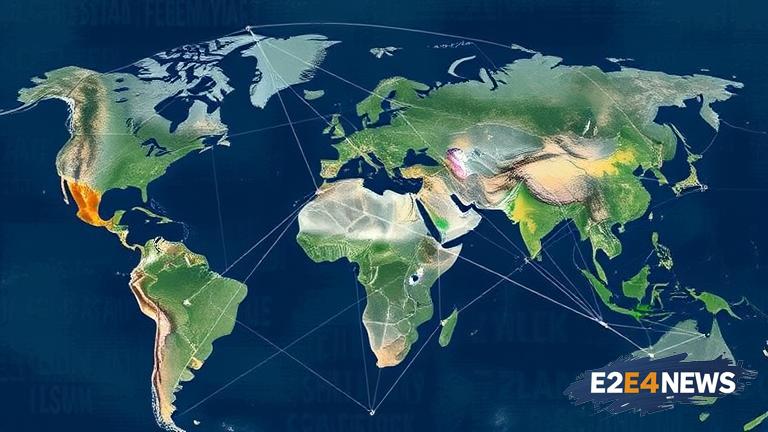In the realm of current geopolitics, India has been actively engaged in shaping its foreign policy to navigate the complex web of global politics. With the rise of emerging economies and shifting power dynamics, India has been seeking to strengthen its diplomatic relations, foster economic partnerships, and forge security alliances. The country’s strategic location, bordering multiple nations, including China, Pakistan, and Bangladesh, makes it a crucial player in regional and global affairs. India’s approach to geopolitics is characterized by a mix of realism, pragmatism, and idealism, as it seeks to balance its national interests with its commitment to global governance and multilateralism. The Indian government has been actively pursuing a policy of ‘neighbourhood first,’ aiming to strengthen ties with its immediate neighbours and promote regional cooperation. At the same time, India has been expanding its diplomatic outreach to other regions, including the Middle East, Africa, and Southeast Asia. The country’s economic growth and rising global influence have made it an attractive partner for many nations, and India has been leveraging its economic clout to negotiate favourable trade agreements and investments. In terms of security, India has been modernizing its military and strengthening its alliances with like-minded nations, such as the United States, Japan, and Australia. The country has also been actively participating in regional security forums, such as the Shanghai Cooperation Organization (SCO) and the Association of Southeast Asian Nations (ASEAN). India’s relations with China have been a major focus of its geopolitical strategy, with the two nations engaging in a complex dance of cooperation and competition. While India has been seeking to strengthen its economic ties with China, it has also been wary of China’s growing military presence in the region and its support for Pakistan. The India-Pakistan relationship remains a major challenge for India’s geopolitical strategy, with the two nations locked in a longstanding dispute over Kashmir and engaging in a series of skirmishes along the Line of Control. Despite these challenges, India has been seeking to engage with Pakistan through diplomatic channels and promote people-to-people contacts. The Indian government has also been actively promoting its ‘Act East’ policy, aiming to strengthen ties with Southeast Asia and promote economic cooperation with the region. In the Middle East, India has been seeking to balance its relations with Iran, Saudi Arabia, and Israel, while also promoting its energy security interests. Africa has also emerged as a major focus of India’s geopolitical strategy, with the country seeking to strengthen its economic ties with the continent and promote cooperation in areas such as agriculture, healthcare, and infrastructure development. Overall, India’s approach to current geopolitics is characterized by a mix of pragmatism, realism, and idealism, as it seeks to navigate the complex web of global politics and promote its national interests. The country’s strategic location, economic growth, and rising global influence make it a crucial player in regional and global affairs, and its geopolitical strategy will have significant implications for the future of global politics. As India continues to navigate the complexities of global politics, it will be important for the country to balance its national interests with its commitment to global governance and multilateralism. The Indian government will need to carefully manage its relations with major powers, such as the United States, China, and Russia, while also promoting its economic and security interests. In the years to come, India’s geopolitical strategy will be shaped by a range of factors, including its economic growth, military modernization, and diplomatic outreach. As the country continues to rise as a global power, its approach to geopolitics will have significant implications for the future of global politics and international relations.
